Throughout history, hair has been a symbol of beauty, vitality, and identity, leading to the emergence of numerous hair myths passed down through generations. As we delve into the realm of hair care and debunk longstanding beliefs, it becomes evident that many of these age-old notions are nothing more than misinterpretations or exaggerations. In this two-part series, we embark on a journey to uncover the truth behind 14 prevalent hair myths that have misled people for decades. From the alleged perils of frequent shampooing to the idea that cutting your hair stimulates growth, we will explore the science and facts behind these myths, providing valuable insights into proper hair care and fostering a deeper understanding of our locks’ unique needs. So, let’s unravel the mysteries and set the record straight on these hair myths that have been false all along. Welcome to Part 1 of our illuminating exploration.
Washing your hair too frequently is bad for your hair
Frequent hair washing has long been a topic of debate among hair care enthusiasts, with some believing that washing your hair too often can be detrimental to its health, while others argue that regular washing with the right products can actually be beneficial. Let’s delve into the different aspects of this discussion.
There is a widespread belief that shampooing too often can strip your hair of its natural oils, which are produced by the scalp to keep the hair shaft hydrated and nourished. These natural oils play a crucial role in maintaining the moisture balance of your hair, preventing it from becoming too dry, brittle, or prone to breakage. However, it’s essential to note that the degree to which shampooing affects the natural oils can vary from person to person, depending on factors such as hair type, scalp condition, and the specific products used.
While it may be too extreme to claim that shampoo completely removes these oils, it’s true that overwashing can lead to a reduction in their levels, especially in those with finer or drier hair. For individuals with naturally oilier scalps, their hair might appear greasy more quickly, prompting them to wash more frequently to maintain a clean and fresh look.
Finding the right balance is key to promoting healthy hair. For many people, shampooing every two to three days is sufficient to keep their hair clean and manageable without excessively depleting its natural oils. On non-shampoo days, using conditioner can help to keep the hair hydrated and nourished without the need for excessive washing.
Moreover, the type of shampoo used can also make a significant difference. Opting for formulas that are less harsh on the hair and contain moisturizing properties can contribute to maintaining the health of your locks. Some people may benefit from using sulfate-free or gentle cleansing shampoos to reduce the risk of stripping their hair of essential oils.
Interestingly, hairdressers often recommend reducing the frequency of washing, particularly after someone has had a professional coloring service. This advice is not primarily related to the natural oils on the hair, but rather aimed at preserving the longevity of the hair color. Frequent washing can cause the color to fade with each wash, so they suggest limiting washing to 1-2 times a week to prolong the vibrancy of the color.
In conclusion, the impact of frequent hair washing depends on individual factors such as hair type, scalp condition, and the products used. For most people, finding a balance that suits their hair’s needs is crucial. Shampooing regularly with appropriate products can indeed moisturize the hair and lead to smoother, shinier, and healthier locks. On the other hand, those with oilier scalps or professionally colored hair may benefit from reducing the frequency of washing to maintain the overall health and appearance of their hair.
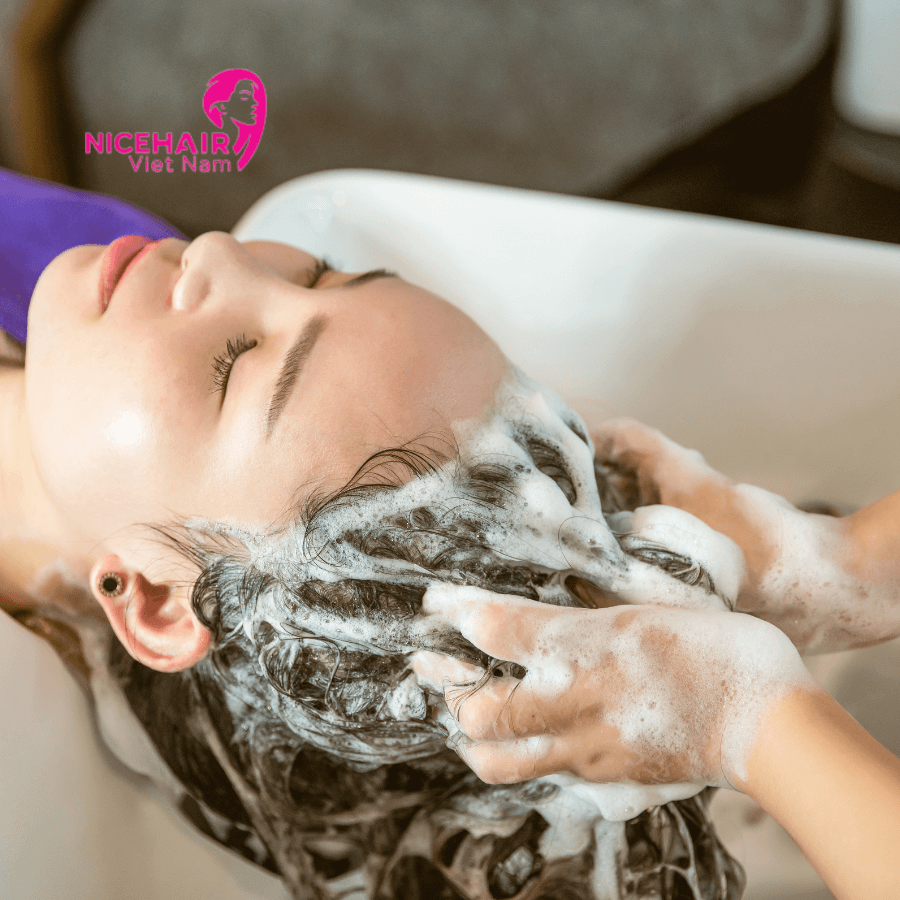
It’s better not to shampoo altogether
The notion of completely avoiding shampooing is often regarded as a myth. Shampoo plays a vital role in cleansing our hair and scalp from natural oil buildup, dead skin cells, and various impurities. Our scalp is continually exfoliating, and shampooing helps to remove bacteria, yeast, excess oil, and pollutants that can accumulate in our hair over time. Additionally, it effectively eliminates any residue left behind by styling products like hairspray, mousse, or gels, which can weigh down and dull the hair.
Neglecting to shampoo your hair for extended periods can lead to several undesirable consequences. Without regular cleansing, the scalp may experience irritation, itchiness, or the appearance of flakes. Furthermore, the hair might start to appear greasy and lackluster, as the accumulation of natural oils and impurities can affect its overall health and appearance.
However, it’s essential to consider individual variations in scalp condition and needs. For individuals with specific scalp issues like eczema or dandruff, a more cautious approach might be necessary. In such cases, scaling back on the frequency of washing to once a week or as advised by a dermatologist can be beneficial in managing these conditions and maintaining scalp health.
In summary, the idea that completely avoiding shampooing is better for your hair is not supported by the evidence. Regular shampooing is essential to keep your scalp and hair clean, healthy, and free from impurities. While some individuals may need to adjust their washing routine based on specific scalp conditions, for most people, regular and appropriate shampooing is crucial for optimal hair and scalp health.
Over washing your hair makes it oily
The belief that over-washing your hair causes it to become oily is not a universal truth. The natural process of your scalp involves producing oils that provide essential moisture to your hair. Therefore, whenever you wash your hair, your scalp interprets the removal of these oils and tries to compensate by producing more. While it is perfectly acceptable to wash your hair daily if you prefer, it is possible that for some individuals, frequent washing might contribute to an excess of oil production, resulting in hair that appears greasy.
To address this issue, it can be beneficial to adjust your washing routine. If you find that your hair becomes excessively oily when washing daily, it might be helpful to reduce the frequency to around 2 or 3 times per week. This change allows your scalp’s oil production to reach a more balanced level, preventing the hair from becoming overly oily.
Ultimately, the ideal washing frequency varies from person to person, and it’s essential to pay attention to your hair’s unique needs. Experimenting with different washing routines and observing how your hair responds can help you find the right balance for maintaining healthy and non-greasy hair.
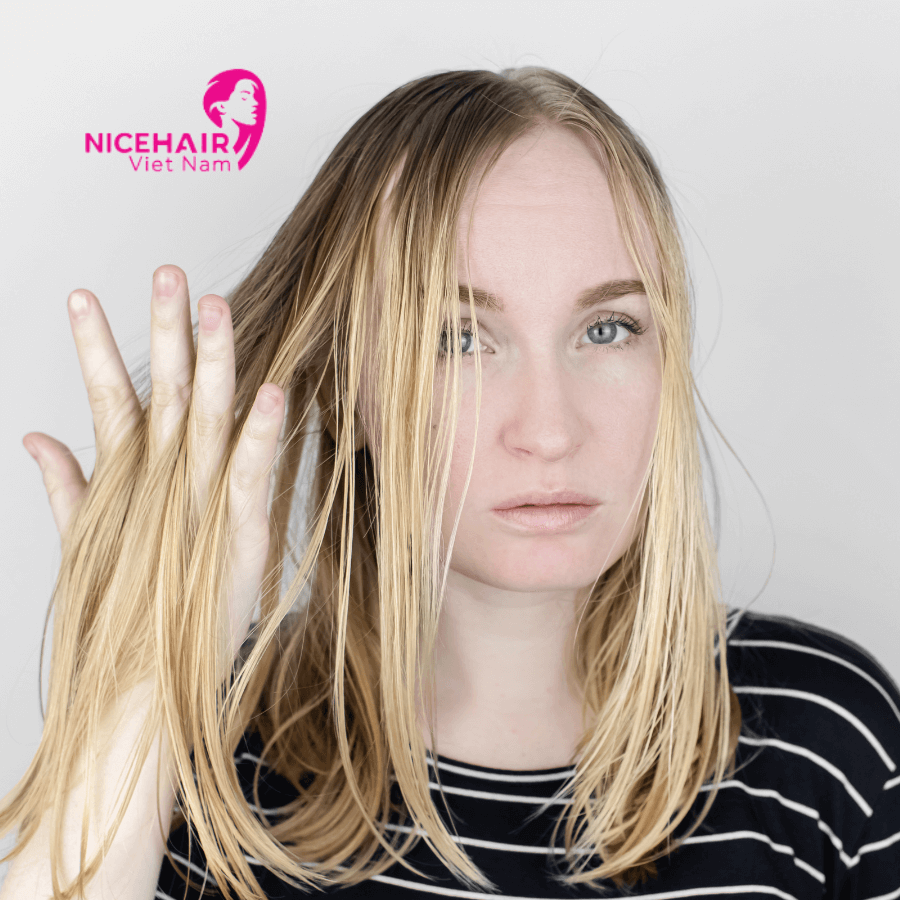
Shampooing too often makes your hair fall out
The belief that shampooing too frequently can lead to hair loss is a common misconception. In reality, hair shedding is a natural and ongoing process, with individuals typically losing up to 100 hairs a day as part of their regular hair growth cycle. This shedding is considered normal and should not be a cause for alarm.
When you shampoo your hair, the action of cleansing can dislodge hairs that are already in the telogen phase of the hair growth cycle, which is the phase where hairs are detached from the hair follicles and ready to fall out naturally. Additionally, brushing and styling can also contribute to this shedding process. Therefore, the hairs you notice during shampooing are often ones that were already destined to fall out.
Moreover, shampooing more frequently can stimulate the hair follicles, which may potentially accelerate the natural shedding process. This can give the impression that you are experiencing more hair fall during each wash. However, it’s important to emphasize that this increased shedding is not an indication of hair loss but rather a reflection of the regular hair growth cycle.
Conversely, if you decide to shampoo less frequently or go for extended periods without washing your hair, you may not observe the daily shedding as noticeably. However, this does not mean that hair loss is not occurring; it simply means that the hairs are accumulating and may be more apparent during a single washing session.
It’s crucial to recognize that various factors can influence hair loss, including genetics, hormonal changes, stress, diet, and certain medical conditions. If you notice excessive hair shedding beyond what is considered normal or have concerns about hair loss, it’s best to consult a dermatologist or a healthcare professional. They can help determine if there are any underlying issues contributing to the hair loss and provide appropriate guidance and treatment if necessary.
In summary, shampooing your hair too often does not directly cause hair loss. Some hair shedding during washing is a natural part of the hair growth cycle. The key is to understand your hair’s unique needs, find a shampooing frequency that works well for you, and address any concerns about hair loss with the help of a qualified professional.
You need to switch your shampoo occasionally
The idea that you should switch your shampoo regularly because your hair becomes accustomed to it is, in fact, a myth. Shampoo, being a cleansing agent, consistently provides the same basic results for your hair, and there is no biological mechanism by which your hair can adapt to it. It’s essential to understand that hair is essentially composed of dead cells, and as such, it doesn’t have the capacity to “get used to” products like living organisms do.
What may vary is the condition of your hair, which can change due to various factors. For instance, environmental factors can play a role, such as in the summer when heat might make your hair drier. Additionally, hormonal changes, such as those during pregnancy, can affect the condition of your hair as well.
Furthermore, if you have undergone hair coloring, your hair’s needs might be different. In such cases, it might be beneficial to switch to a shampoo specifically designed for colored hair or opt for a more moisturizing conditioner to address the potential dryness caused by the coloring process.
The key to maintaining healthy hair lies in understanding and addressing the specific needs of your hair at any given time. Instead of blindly following the myth of regularly switching shampoos, it’s essential to pay attention to your hair’s condition and adjust your hair care routine accordingly. This may involve choosing different hair care products based on seasonal changes, hormonal shifts, or treatments you’ve undergone, rather than just switching for the sake of change. Ultimately, finding the right combination of products that suit your hair’s individual needs will help you achieve the best results and maintain healthy, beautiful hair.
View more: 4 steps to get rid of dry scalp with minimal effort
Cold water makes hair shinier
The notion that using cold water for hair washing leads to shinier hair is a common myth that requires further examination. The theory behind this belief suggests that cold water helps to seal the hair cuticle, which is the outer protective layer of the hair shaft. The supposed benefit is that a sealed cuticle leads to smoother, flatter hair strands, resulting in light reflection and enhanced shine.
However, the reality is a bit more nuanced. While it is true that the cuticle’s condition can influence the appearance of the hair, it’s not the cold water itself that plays a significant role in sealing the cuticle. The primary agent responsible for smoothing the cuticle and locking in shine is actually the conditioner, which contains ingredients that coat the hair shaft, making it appear smoother and more reflective.
Using cold water during hair washing can cause the cuticle to contract, potentially leading to a smoother feeling. However, the effects are temporary and do not have a lasting impact on the hair’s overall shine. In fact, cold water can have some drawbacks when it comes to hair and scalp health.
Cold water can constrict the capillaries in the scalp, which are responsible for carrying essential nutrients and oxygen to the hair follicles. This constriction may reduce the flow of nutrients, potentially affecting hair health and growth. Additionally, cold water may not be as effective in thoroughly cleansing the hair and scalp, as it might not remove excess sebum, product buildup, and impurities as effectively as warm water.
To strike a balance between hair health and achieving a shiny appearance, it is recommended to wash hair with lukewarm water. Lukewarm water can help to open up the cuticle slightly, allowing the cleansing agents in shampoo to better remove dirt and buildup. Following with a conditioner, which provides essential nutrients and moisture to the hair, can help lock in the shine and improve overall hair appearance.
In conclusion, the idea that cold water leads to significantly shinier hair by sealing the cuticle is not entirely accurate. The conditioner is the primary factor responsible for providing shine and smoothness by sealing the cuticle. Washing with cold water may have temporary effects, but it could potentially impact nutrient flow to the hair follicles. Opting for lukewarm water and using the right hair care products, such as conditioners, will contribute more effectively to achieving and maintaining healthy, shiny hair.
You only need shampoo, not conditioner
The idea that shampoo alone is sufficient and conditioner is not needed is a myth that has circulated in hair care discussions. In reality, shampoo and conditioner serve two distinct yet vital functions in maintaining healthy hair.
Shampoo plays a crucial role in cleansing the hair and scalp. When you apply shampoo, it opens the cuticle of the hair shaft, allowing it to lift and remove dirt, excess oils, and any product buildup that may have accumulated over time. Through this cleansing process, shampoo effectively purifies the scalp, promoting a clean and refreshed feeling.
On the other hand, conditioner complements the shampooing process by providing much-needed nourishment and protection to the hair. After shampooing, the hair cuticle is left slightly raised and exposed. Conditioner works to seal the cuticle, creating a protective barrier around the hair shaft. This sealing action helps to lock in moisture, essential nutrients, and the natural oils produced by the scalp, preserving the hair’s health and shine.
While both shampoo and conditioner are essential components of a complete hair care routine, it’s worth noting that conditioning every single time might not be necessary for everyone. Individual hair types, textures, and needs can vary, and some people might find that frequent conditioning can weigh down their hair or lead to excessive oiliness. In such cases, it can be beneficial to explore alternative conditioning methods.
For instance, you can try using a lighter formula, such as a leave-in spray or a moisturizing serum, which provides some conditioning benefits without the need for traditional rinse-out conditioner. These leave-in options offer a more subtle approach to conditioning, ensuring that your hair remains nourished and manageable without the risk of overloading it with product.
In conclusion, the myth that shampoo alone suffices and conditioner is not necessary overlooks the important roles each product plays in maintaining healthy hair. Regular cleansing with shampoo is vital to keep the hair and scalp clean, while the conditioning step provides essential nourishment and protection. To optimize your hair care routine, it’s essential to consider your hair’s unique requirements and adjust the frequency and type of conditioning accordingly. By tailoring your approach, you can achieve the best results and ensure your hair stays in its healthiest and most beautiful state.
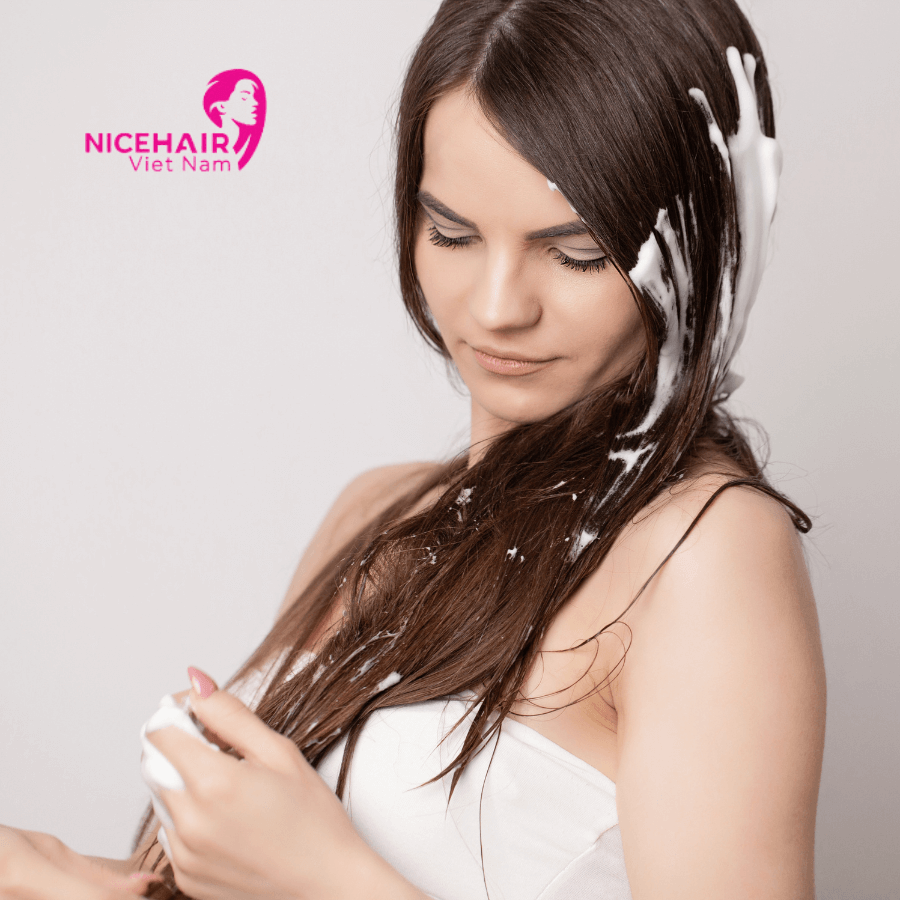
Summary
In conclusion, our journey through the realm of hair myths has been an eye-opening exploration of the misconceptions and fallacies that have surrounded our precious locks for years. Part 1 of this series has shed light on some of the most pervasive beliefs, debunking them with a deeper understanding of hair myths and scientific evidence. As we bid farewell to this chapter, we leave behind the illusions that have misguided us in our pursuit of healthy, luscious hair.
One of the recurring themes in our debunking journey has been the importance of individuality when it comes to hair myths. Every person’s hair is unique, with its own set of needs and characteristics. What works wonders for one may not necessarily be suitable for another. Our hair type, scalp condition, lifestyle, and even our environment play pivotal roles in determining the most appropriate hair care regimen.
Among the myths dispelled, we learned that shampooing too often does not lead to hair loss, but rather, it is a natural part of the hair growth cycle. The belief that frequent trims stimulate hair growth has also been proven false, as hair growth occurs from the hair follicles at the scalp, and regular trims only contribute to overall hair health and appearance.
We also explored the misconception that washing your hair every day makes it oily. In reality, the scalp naturally produces oils that are essential for hair health. While over-washing may stimulate more oil production, the right balance of washing frequency is crucial to maintaining a healthy scalp and hair.
Moreover, we addressed the idea that leaving conditioner on your scalp causes hair loss. When applied correctly, conditioner nourishes and hydrates the hair without impacting the hair follicles.
Additionally, we debunked the notion that plucking one gray hair leads to the growth of multiple gray hairs. Hair color is determined by genetics and natural aging processes, and plucking a gray hair will not affect the color of future hair growth.
In Part 2 of our exploration, we will continue to unravel more hair myths, empowering ourselves with even more evidence-based knowledge. As we continue this journey, let us remember that hair care is not a one-size-fits-all endeavor, but rather a delightful voyage of discovery, where each of us can celebrate the beauty of our locks in our own special way.
So, until we meet again in Part 2, let us cherish our tresses, nourish our scalps, and revel in the beauty of our hair with newfound clarity and wisdom. Here’s to debunking more myths, embracing the truth, and celebrating the unique marvel that is our hair!


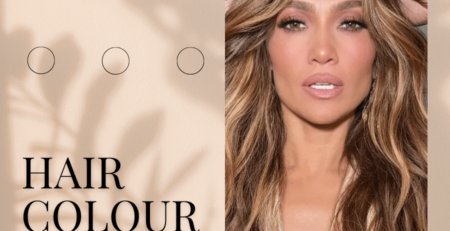
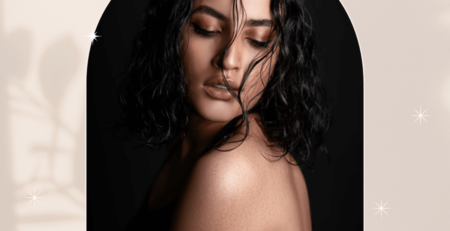
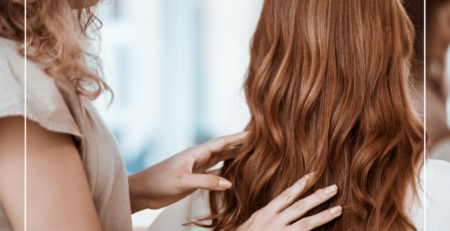
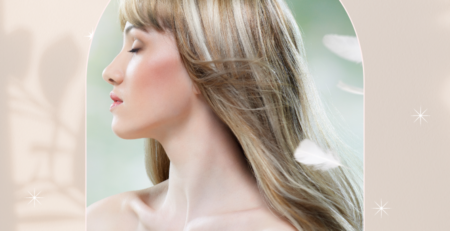
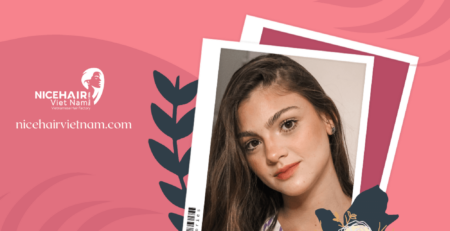
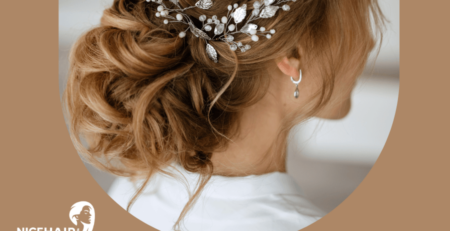
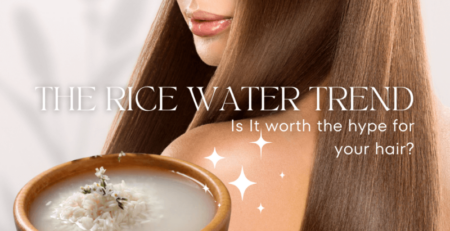
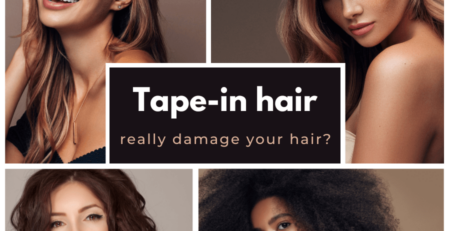

Leave a Reply